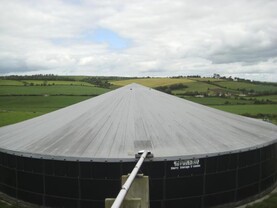The Common Agricultural Policy (CAP) has to be looked at again, according to the chair of the Oireachtas Committee on Agriculture Jackie Cahill TD.
The Tipperary TD said that the new CAP was formed in a “very different global environment” and warned that this has since “changed completely”.
He was responding to the impact of the war in Ukraine, which he said has “driven home to many of us just how vulnerable we are when it comes to food security”.
Cahill was speaking in an address he made on Monday in France while attending a conference of the agricultural committee chairs of the parliaments of the 27 EU member states.
Back to basics
The Fianna Fáil TD insisted that the European Union “must go back to basics with CAP”.
He said: “We must not take our food security for granted. The world is rapidly changing and recent events have proven that we must remain united, as a European community, to protect the welfare and needs of all our people and that most definitely includes feeding our people."
He highlighted that the CAP was originally created to ensure that Europe produced enough food, as efficiently as possible, to feed a growing population.
“Farmers were supported through direct payments for decades to reach this goal and it was hugely successfully,” he said.
Climate change agenda
Cahill warned that in “recent times” the CAP has moved “away from a production-based policy to an environmental-based policy”.
“I fully accept that we have to move with the climate change agenda, but we cannot do so at the cost of production when we have a growing global population to feed.”
He said Europe cannot afford to reduce food production due to the growing population to feed globally and the fact that over 1 billion people are “starving or malnourished as things stand”.
“If food starts to become scarcer, we are left with a situation where prices will rise. We are already battling a rising cost of living right across our 27 member states and no more [so] than my own home country of Ireland. Less food production means higher prices for the consumer,” he said.






 This is a subscriber-only article
This is a subscriber-only article










SHARING OPTIONS: